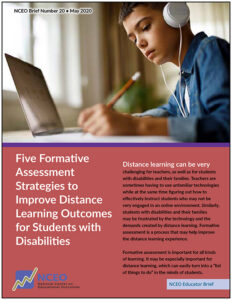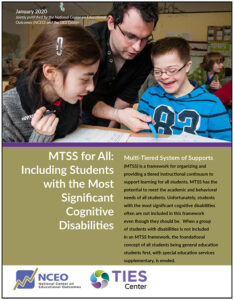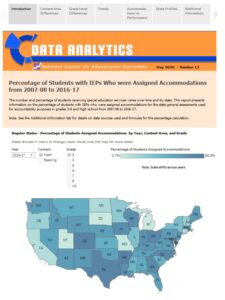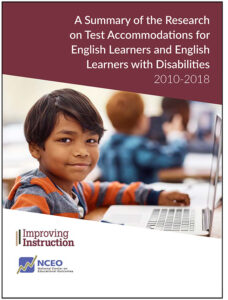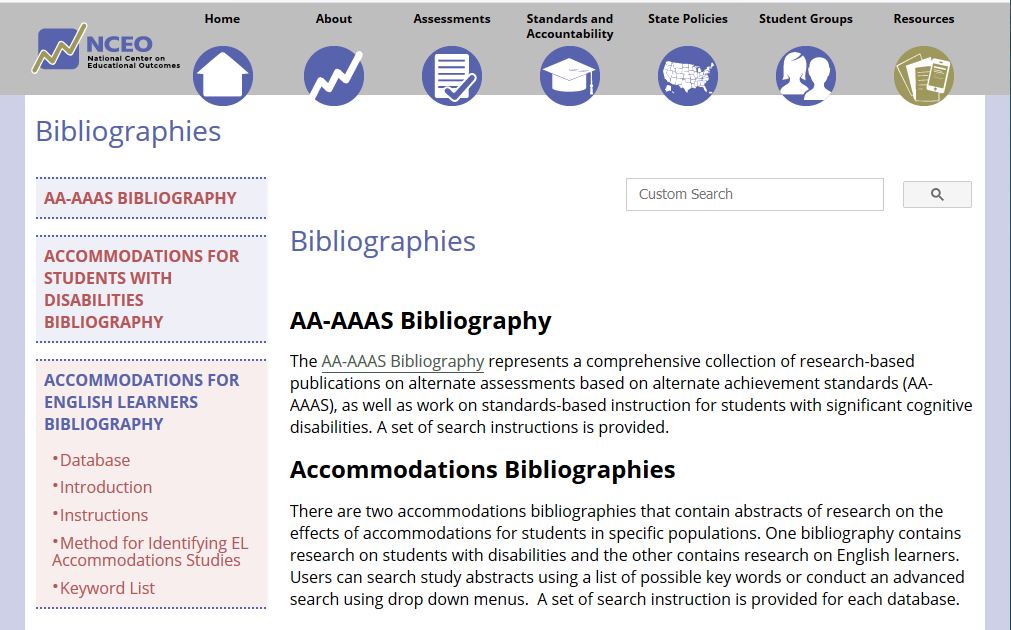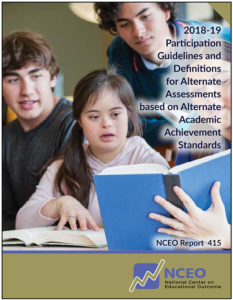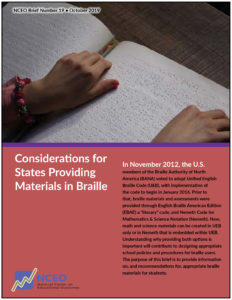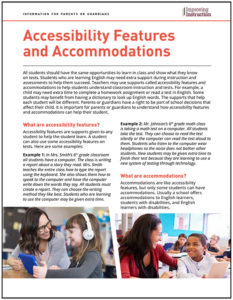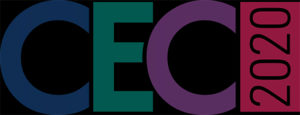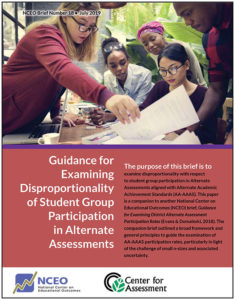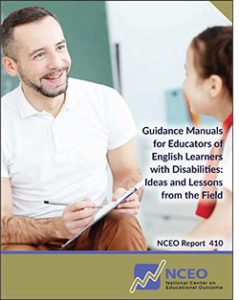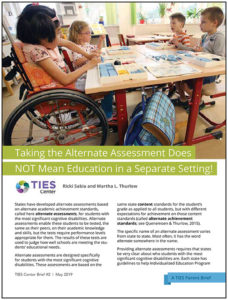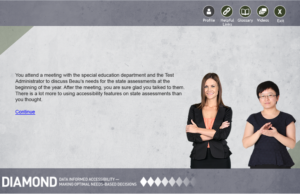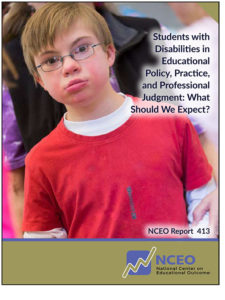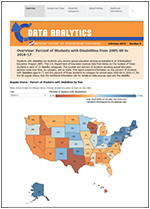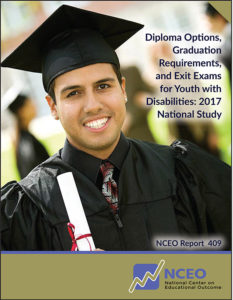Welcome
These are challenging times, and it has been an unprecedented year, but I continue to be amazed by the resilience of NCEO staff and the incredible work they are doing to address new needs and issues. In this issue, I am pleased to share information about a few of the resources and products staff have developed to meet needs.
This issue highlights translations of several NCEO and affiliated center products. One or more publications are now available in each of the following languages: Arabic, Traditional Chinese, Simplified Chinese, Spanish, and Vietnamese. It also highlights a new guidebook on including students with disabilities and English learners in assessments, and the resources available from several webinars that NCEO conducted for the U.S. Department of Education’s Office of Elementary and Secondary Education (OESE). Additionally, this newsletter highlights two new briefs on access to the general education curriculum by students with the most significant cognitive disabilities, as well as several new distance learning resources.
Sheryl Lazarus, NCEO Director
Translations of Selected Products Now Available
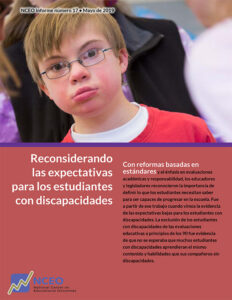 Selected publications of NCEO and affiliated projects have been translated into several languages. Reconsiderandolas expectativas para los estudiantes con discapacidades is a Spanish translation of Students with Disabilities in Educational Policy, Practice, and Professional Judgment: What Should We Expect? The purpose of this brief is to summarize some of the past exclusionary practices that resulted from low expectations for students with disabilities, and how those were addressed in policies related to standards-based reform.
Selected publications of NCEO and affiliated projects have been translated into several languages. Reconsiderandolas expectativas para los estudiantes con discapacidades is a Spanish translation of Students with Disabilities in Educational Policy, Practice, and Professional Judgment: What Should We Expect? The purpose of this brief is to summarize some of the past exclusionary practices that resulted from low expectations for students with disabilities, and how those were addressed in policies related to standards-based reform.
Guidebook to Including Students with Disabilities and English Learners in Assessments
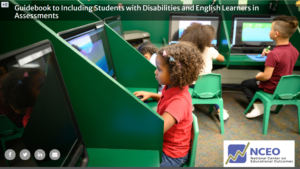 NCEO recently published the Guidebook to Including Students with Disabilities and English Learners in Assessments. This Guidebook was developed to highlight the lessons learned about how to ensure inclusive assessment practices for students with disabilities and English learners. It also provides foundational information on the characteristics of these students that require consideration during all phases of assessment design, development, and implementation.
NCEO recently published the Guidebook to Including Students with Disabilities and English Learners in Assessments. This Guidebook was developed to highlight the lessons learned about how to ensure inclusive assessment practices for students with disabilities and English learners. It also provides foundational information on the characteristics of these students that require consideration during all phases of assessment design, development, and implementation.
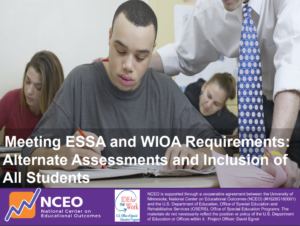 PowerPoints and Videos Available for Webinars Conducted for the Office of Elementary and Secondary Education (OESE)
PowerPoints and Videos Available for Webinars Conducted for the Office of Elementary and Secondary Education (OESE)
NCEO recently conducted three webinars for the U.S Departments of Education’s Office of Elementary and Secondary Education (OESE) on topics related to peer review and students with disabilities. The webinars were: (1) Meeting Every Student Succeeds Act (ESSA) and Workforce Innovation and Opportunity Act (WIOA) Requirements: Alternate Assessments and Inclusion of All Students; (2) How Do We Lower our Alternate Assessment Participation Rate? Five States Share their Stories; and (3) Successfully Making and Implementing Participation and Accommodations Decisions for English Learners with Disabilities.
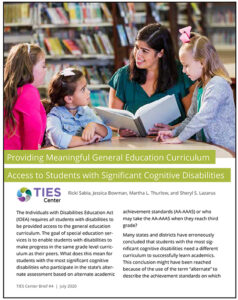 Two New Briefs on Access to the General Education Curriculum by Students with the Most Significant Cognitive Disabilities
Two New Briefs on Access to the General Education Curriculum by Students with the Most Significant Cognitive Disabilities
TIES Center, a center affiliated with NCEO, recently published two briefs on access to the general education curriculum by students with the most significant cognitive disabilities.
New Additions to TIES Center’s Distance Learning Series
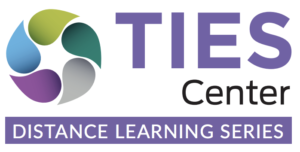 A NCEO affiliated center, TIES Center, has a distance learning series that provides a framework for students with the most significant cognitive disabilities to participate in distance learning, engage fully in academics online, and interact with their teachers and peers, a critical component of well-being. TIES Center is regularly adding resources to this series to support the inclusion and engagement of students with significant cognitive disabilities.
A NCEO affiliated center, TIES Center, has a distance learning series that provides a framework for students with the most significant cognitive disabilities to participate in distance learning, engage fully in academics online, and interact with their teachers and peers, a critical component of well-being. TIES Center is regularly adding resources to this series to support the inclusion and engagement of students with significant cognitive disabilities.
NCEO’s National Assessment Center is supported through a Cooperative Agreement (#H326G160001) with the Research to Practice Division, Office of Special Education Programs, U.S. Department of Education. The Center is affiliated with the Institute on Community Integration at the College of Education and Human Development, University of Minnesota. The contents of this report were developed under the Cooperative Agreement from the U.S. Department of Education, but do not necessarily represent the policy or opinions of the U.S. Department of Education or Office within it. Readers should not assume endorsement by the federal government.

